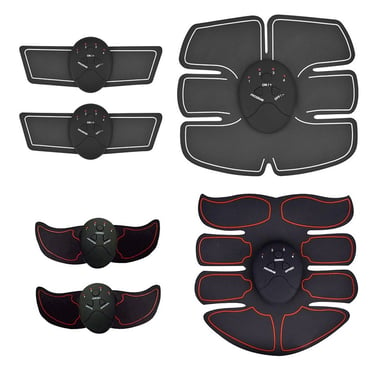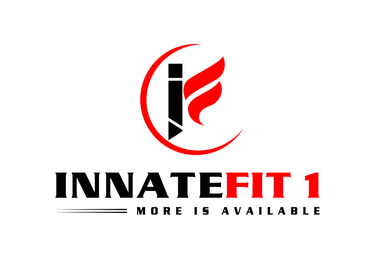Visit Innatefit1.com for exercise wear and equipment!!!

Beginner Nutrition Plans for Couples Starting Fitness
Kickstart your fitness journey as a couple with our beginner nutrition plans. Learn how to balance meals, meet caloric needs, and stay motivated together for long-term success.
Joseph Battle
8/21/202410 min read


Starting a fitness journey together as a couple can be an exciting and rewarding experience. Not only does it strengthen your relationship, but it also helps both partners stay motivated and accountable.
However, for many couples, the challenge lies not only in the exercise regimen but also in understanding and implementing proper nutrition to support their fitness goals. This comprehensive guide will provide you with a beginner-friendly approach to nutrition that aligns with your fitness objectives as a couple.
Introduction to Nutrition and Fitness
Importance of Nutrition in Fitness for Couples
Nutrition plays a pivotal role in fitness, acting as the fuel that powers workouts and aids in recovery. When couples embark on a fitness journey together, aligning nutritional goals is essential for ensuring they both get the most out of their exercise routines.
Proper nutrition helps in muscle repair, enhances energy levels, and supports overall health, making it easier to achieve fitness targets.
Benefits of Starting Fitness Together
Working out together strengthens both your bodies and your bond as a couple. It fosters teamwork, improves communication, and provides an opportunity to support each other’s goals.
Additionally, couples who engage in fitness activities are more likely to stay committed, creating a healthy and active lifestyle that becomes a shared priority.
Setting Realistic Goals as a Couple
Setting realistic and achievable goals before embarking on a nutrition plan is crucial. Discuss what you both want to achieve, such as weight loss, muscle gain, or improving overall health.
Setting clear, attainable goals will help you create a tailored nutrition plan that suits your needs and keeps you motivated.
Understanding Basic Nutrition Principles
Macronutrients: Proteins, Carbs, and Fats
Macronutrients are the cornerstone of any nutrition plan. Proteins are essential for muscle repair and growth, carbohydrates provide energy, and fats are vital for hormone production and cell function. A balanced intake of these macronutrients is necessary to support your fitness goals.
Proteins: Aim to include a source of protein in every meal. Lean meats, fish, eggs, dairy, and plant-based options like beans and tofu are excellent.
Carbohydrates: Focus on complex carbs such as whole grains, fruits, and vegetables. These provide sustained energy and are packed with essential nutrients.
Fats: Incorporate healthy fats, such as those found in avocados, nuts, seeds, and olive oil. These fats support heart health and help absorb vitamins.
Micronutrients: Vitamins and Minerals
Vitamins and minerals, though needed in smaller amounts, are crucial for maintaining health and optimizing bodily functions. They support immune health, bone strength, and energy production. Ensuring a diet rich in colorful fruits and vegetables will help meet your micronutrient needs.
Importance of Hydration
Staying hydrated is vital, especially when you’re active. Water aids in digestion regulates body temperature and helps in nutrient absorption. As a rule of thumb, aim to drink at least 8-10 glasses of water daily and increase intake during workouts.
Caloric Needs for Beginners
Determining Your Basal Metabolic Rate (BMR)
Your BMR is the number of calories your body needs at rest to maintain essential physiological functions like breathing and circulation.
Knowing your BMR helps you understand your baseline caloric needs before accounting for activity levels.
Understanding Total Daily Energy Expenditure (TDEE)
TDEE represents the total calories you burn daily, including all activities. To determine this, multiply your BMR by an activity factor that reflects your daily physical activity level. This calculation helps set your daily caloric intake based on whether you aim to lose, maintain, or gain weight.
Caloric Surplus vs. Deficit
Caloric Surplus: Consuming more calories than you burn is essential for muscle gain.
Caloric Deficit: Eating fewer calories than you burn leads to weight loss. Since couples may have different caloric needs, tailoring your intake is essential.
Creating a Nutrition Plan Together
Assessing Individual Dietary Needs
While you embark on this journey together, each partner’s dietary needs might differ based on age, gender, weight, and fitness goals. It’s essential to assess these needs individually to create a nutrition plan that works for both of you.
Finding Common Ground for Shared Meals
Identify common foods you enjoy that meet your nutritional needs to simplify meal preparation. This could involve creating a menu that includes a variety of protein, carb, and fat sources that can be mixed and matched to suit your preferences.
Meal Planning and Prep as a Team
Plan your meals to save time and reduce the temptation of unhealthy options. Spend time together preparing meals, ensuring you eat nutritious food and strengthen your bond. Consider setting aside a day each week to batch cook and portion meals.
Importance of Balanced Meals
What Constitutes a Balanced Meal?
A balanced meal includes protein, healthy fats, and complex carbohydrates. It should also be rich in vitamins and minerals, primarily from fruits and vegetables. This balance helps maintain energy levels and supports muscle recovery.
Portion Control and Managing Cravings
Learning portion control is critical to maintaining a healthy diet. Use smaller plates, measure servings, and listen to your body’s hunger cues. To manage cravings, try healthier alternatives like fruit or yogurt instead of sugary snacks.
Role of Fiber in a Healthy Diet
Fiber is essential for digestive health and helps to feel full longer, preventing overeating. Include fiber-rich foods like whole grains, legumes, fruits, and vegetables.
Sample Meal Plans for Beginners
Sample Breakfast, Lunch, and Dinner Options
Breakfast: Oatmeal with berries and a side of scrambled eggs or a smoothie with spinach, banana, and protein powder.
Lunch: Grilled chicken salad with mixed greens, quinoa, and avocado, or a turkey and veggie wrap with whole grain bread.
Dinner: Baked salmon with sweet potatoes and steamed broccoli or a stir-fry with tofu, brown rice, and colorful vegetables.
Healthy Snacks
Incorporate snacks like Greek yogurt with nuts, apple slices with almond butter, or a handful of mixed nuts to keep energy levels stable throughout the day.
Simple and Quick Recipes
Opt for recipes that are easy to prepare yet nutritious. Examples include overnight oats, grilled vegetable wraps, or one-pot pasta with lean protein and vegetables.
Pre- and Post-Workout Nutrition
Importance of Pre-Workout Meals
Pre-workout nutrition is crucial because it provides the energy your body needs to perform optimally during exercise. Eating the right foods before a workout helps improve endurance, strength, and overall performance. Planning your pre-workout meals together as a couple ensures that both of you have the energy needed to maximize your workouts.
What to Eat Before Exercising
A good pre-workout meal should include a combination of carbohydrates and protein. Carbohydrates fuel your muscles, while protein helps with muscle repair and growth. Depending on your digestion, aim to eat your pre-workout meal about 1-3 hours before exercising.
Examples:
A banana with a small handful of nuts
Whole grain toast with peanut butter
A smoothie made with fruit, yogurt, and a scoop of protein powder
If you're short on time, a minor snack 30 minutes before your workout, like a piece of fruit or a protein bar, can also be effective.
Post-Workout Recovery Nutrition
After your workout, your body needs to recover and rebuild muscle, making post-workout nutrition just as important as what you eat beforehand. A meal or snack that includes both protein and carbohydrates is ideal for replenishing energy stores and aiding muscle recovery.
Examples:
Grilled chicken with sweet potatoes
A protein shake with a piece of fruit
Quinoa salad with mixed vegetables and lean protein
Consuming these nutrients within 30 minutes to an hour after your workout can significantly enhance your recovery.
Supplements: Do You Need Them?
Overview of Popular Supplements
Supplements can be beneficial, especially if there are gaps in your diet that you find difficult to fill with food alone. Some commonly used supplements among fitness enthusiasts include:
Protein powders: To help meet protein needs, especially post-workout
Multivitamins: To ensure adequate intake of essential vitamins and minerals
Creatine: To improve strength and muscle mass
BCAAs (Branched-Chain Amino Acids): To support muscle recovery
Benefits and Risks
While supplements can enhance your nutrition and fitness, they are not a substitute for a balanced diet. It's essential to understand that taking supplements without proper guidance can lead to unnecessary intake of certain nutrients, which might cause health issues.
How to Choose the Right Supplements
Before adding supplements to your diet, assess your nutritional needs and consult a healthcare professional. Opt for high-quality products that have been tested for safety and efficacy. As a couple, you might consider taking the same supplements if you share similar dietary gaps and fitness goals.
Nutrition Myths and Facts
Debunking Common Nutrition Myths
Getting caught up in popular nutrition myths is easy when starting a fitness journey. Here are a few myths debunked:
Myth: "Carbs make you fat."
Fact: Carbohydrates are essential to a balanced diet and provide energy. It’s the type and amount of carbs that matter.Myth: "Eating fat makes you fat."
Fact: Healthy fats are crucial for bodily functions and can help with weight management when eaten in moderation.Myth: "You need to eat every 2-3 hours to boost metabolism."
Fact: Meal frequency doesn’t significantly impact metabolism. Focus on overall daily intake instead.
Understanding Fad Diets
Fad diets often promise quick results but can be unsustainable and sometimes unhealthy in the long term. These diets may lead to nutrient deficiencies, energy loss, and, eventually, weight regain. Instead of following trends, focus on balanced nutrition that you can maintain over time.
Importance of Scientific Evidence in Nutrition
Rely on scientifically-backed information when making nutrition decisions. Avoid diets or supplements that make exaggerated claims without evidence. Trust sources like registered dietitians, nutritionists, and peer-reviewed research to guide your choices.
Maintaining Motivation as a Couple
Encouraging Each Other
Staying motivated is easier when you have a partner who supports your goals. Encourage each other with positive reinforcement, celebrate small victories, and provide gentle reminders when one of you feels less motivated.
Setting Short- and Long-Term Goals
A mix of short—and long-term goals keeps you both focused and provides a sense of accomplishment. Short-term goals might include weekly meal prep, while long-term goals could relate to achieving specific fitness milestones.
Rewarding Progress
Celebrate your achievements together, whether sticking to your nutrition plan for a month or reaching a fitness goal. Rewards could be a special meal, a day out, or something fitness-related like new workout gear.
Adjusting Nutrition Plans Over Time
Tracking Progress
Regularly tracking your progress helps you understand how well your nutrition plan works. You can do this through physical measurements, fitness milestones, or how you feel energy-wise. Use this information to make necessary adjustments.
Making Adjustments to Caloric Intake
You may need to adjust your caloric intake as your fitness level improves. This could mean increasing calories if you’re building muscle or decreasing them by cutting fat. Monitor your results and tweak your diet as needed.
Evolving Your Diet as Fitness Levels Improve
As you progress in your fitness journey, your dietary needs may change. You might require more protein to support muscle growth or different nutrient ratios to optimize performance. Continually evolve your diet to match your current fitness level.
Dealing with Challenges and Setbacks
Overcoming Plateaus
Hitting a plateau is common and can be frustrating. To overcome it, consider varying your diet or workout routine. This could involve trying new recipes, increasing workout intensity, or incorporating different types of exercise.
Handling Different Dietary Preferences
It’s normal for couples to have different dietary preferences. Finding a balance that accommodates both partners can involve cooking separate dishes or finding common ground with foods you both enjoy.
Staying Committed During Busy Times
Life can get busy, but staying committed to your nutrition plan is crucial. To maintain your progress, prepare meals in advance, keep healthy snacks on hand, and support each other through stressful periods.
Incorporating Healthy Eating Habits
Importance of Meal Timing
When you eat can be just as important as what you eat. Spreading your meals evenly throughout the day helps maintain energy levels and prevents overeating. Focus on consistent meal times to support your metabolism and energy needs.
Reducing Sugar and Processed Foods
Limiting added sugars and processed foods is vital for maintaining a healthy diet. These foods often contain empty calories and lack essential nutrients. Instead, focus on whole foods like fruits, vegetables, lean proteins, and whole grains.
Emphasizing Whole Foods
Whole foods are nutrient-dense and provide the vitamins, minerals, and fiber your body needs to function optimally. Incorporate a variety of whole foods into your diet to ensure you get a broad spectrum of nutrients.
Eating Out and Social Events
Making Healthy Choices at Restaurants
Eating out doesn’t have to derail your nutrition plan. Choose grilled, baked, or steamed dishes, and ask for dressings or sauces on the side. Opt for whole grains, lean proteins, and plenty of vegetables.
Managing Social Pressures
Social events often involve foods that might not align with your nutrition goals. Communicate your dietary preferences with friends and family, and don’t be afraid to bring a healthy dish to share.
Navigating Buffets and Parties
Start by filling your plate with vegetables and lean proteins at buffets or parties. Use smaller plates if possible, and be mindful of portion sizes. Allow yourself to enjoy treats in moderation without feeling guilty.
FAQs on Beginner Nutrition for Couples
What if We Have Different Fitness Goals?
It’s common for couples to have different fitness goals, such as one partner wanting to lose weight while the other aims to gain muscle. Customize your nutrition plans to meet your needs while sharing meals that align with both goals.
How Can We Stay Consistent with Meal Planning?
Setting aside time each week to plan and prepare meals together can achieve consistency in meal planning. Consider making a menu, grocery shopping as a team, and cooking in bulk to save time and reduce stress.
What Should We Do if One of Us Struggles?
If one partner struggles to stay on track, provide support and encouragement without judgment. Revisit your goals together, adjust the plan if necessary, and remind each other why you started this journey.
How Do We Balance Nutrition with Busy Schedules?
To balance nutrition with a busy lifestyle, prioritize meal prep, keep healthy snacks on hand, and opt for quick, nutritious recipes. Support each other by sharing cooking responsibilities and staying flexible with your plan.
Should We Follow the Same Diet Plan?
While following the same diet plan is convenient, individual needs may vary. Customizing your diet to meet personal caloric and nutrient needs is essential, even if it means having slightly different meals.
How Do We Handle Cravings Together?
Handling cravings can be more accessible when done as a team. Keep healthy alternatives on hand, and find creative ways to satisfy cravings without derailing your nutrition plan. Support each other by making more nutritious choices together.
Conclusion
Embarking on a fitness journey together as a couple can be an advantageous experience, strengthening both your bodies and your relationship. A well-structured nutrition plan is essential for achieving your fitness goals and maintaining long-term health.
You can build a sustainable and healthy lifestyle together by understanding the basics of nutrition, setting realistic goals, and supporting each other through challenges. Remember that consistency is critical, and you can achieve anything you want with mutual support.








